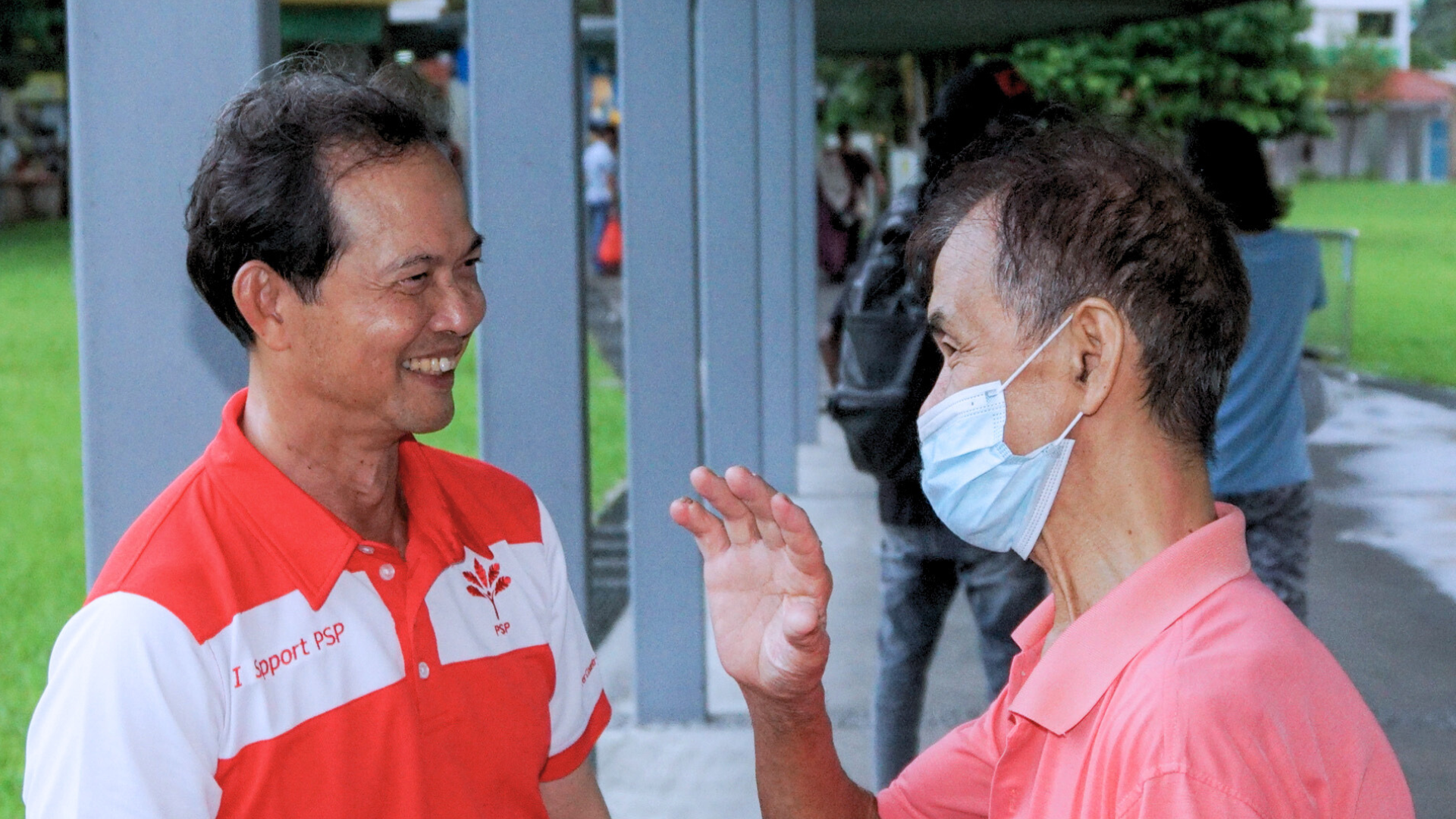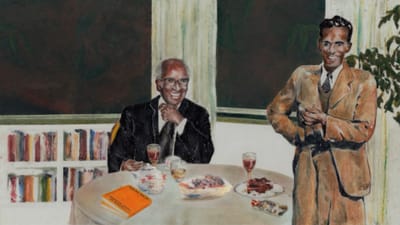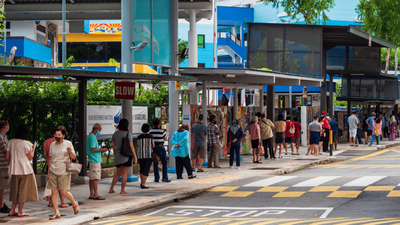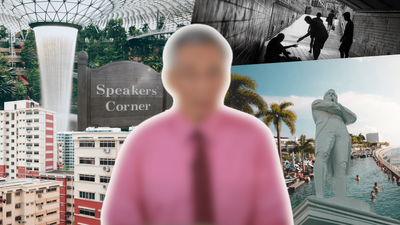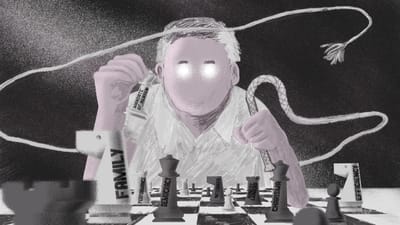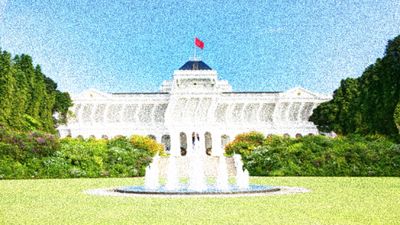Perhaps the most damning bit of evidence about the arrogance and elitism of the ruling People’s Action Party (PAP) is from a September 2021 parliamentary session. In a debate over the Comprehensive Economic Cooperation Agreement (CECA) between India and Singapore, PAP politicians became agitated by the persistent questions from Leong Mun Wai, 64, a non-constituency member of parliament (NCMP) with the Progress Singapore Party (PSP). They started mocking him, unaware that a microphone was still on. “He is illiterate,” Vivian Balakrishnan, foreign minister, was heard saying. “Seriously, how did he get into RI [Raffles Institution]? Must have been a lousy school,” somebody else added. Leong has continued to be a thorn in the side of the government on all manner of subjects.
The PAP’s attempts to portray him as a fool seem to have failed, for the PSP has just announced Leong’s election as its new secretary-general, taking over from Francis Yuen. This is part of a broader succession plan given that Tan Cheng Bock, party founder (and chairman), is almost 83. But it also speaks to a style of politics that few saw coming and that may feature prominently at the next election. “Folksy”, “big into histrionics” and positioning himself as “the proverbial David against Goliath”, as one analyst told CNA, Leong offers a more confrontational approach than that of the Workers’ Party, the main opposition party.
To help readers get to know him a bit better, Jom asked Leong if he’d like to respond to an e-mail Q&A. His responses, edited lightly for style, are below.
Jom: You’ve said that you “strive to bring PSP to greater heights.” What are the top three decisions/changes you’ll be making as secretary-general to accomplish this?
Leong Mun Wai (LMW): There is a quote I read, “You can see far when you are standing on the shoulders of giants.”*
PSP was led by two previous secretary-generals who are giants in their own right, and have laid a strong foundation for the party. In 2019, Dr Tan Cheng Bock founded the party and led us into GE2020. We now have two NCMPs representing the party in Parliament. As secretary-general of the party, my main priorities revolve around people. First and foremost, I aim to energise our party members and volunteers alike to prepare them for the next general election. Through our groundwork, I aim to also increase voter recognition of PSP and cultivate broader support for PSP from the wider community.
* Original: “If I have seen further, it is by standing on the shoulders of giants.” - Isaac Newton, 1675
You’ll be leading the party into the next general election. This will test a different set of skills to those needed in Parliament, such as leadership and organisational abilities. How ready are you for these challenges? What more would you need to do to become ready?
LMW: As secretary-general, being able to galvanise and bring together members from diverse backgrounds is key. I am lucky to have deep prior experience in change leadership in mergers and acquisitions in large corporations. These skills are complemented by the guidance from my political mentor, Dr Tan Cheng Bock.
PSP has a committed base of members and volunteers who have contributed their resources, efforts and many late nights to build this party together. This is a team effort and I acknowledge that managing volunteers in a political party vis-à-vis a profit-driven organisation is very different. I am confident that with the support from the central executive committee (CEC), members and volunteers, I will be able to bring PSP to greater heights in the next general election.
Some of your critics have described you as “unprofessional”, “confrontational” and “big into histrionics”. Your supporters cheer your outspokenness and your apparent willingness to stand up to perceived bullying, “the proverbial David against Goliath”. How would you assess your own style of debate in Parliament? And how effective do you think it has been in achieving PSP’s goals?
LMW: I have always been passionate about speaking up for those who are under represented. When I first entered Parliament in Aug 2020, my only objective was to speak out on issues that matter, on behalf of Singaporeans. Some Singaporeans may perceive me as being “confrontational” because I ask the Government many questions to get to the bottom of issues that I have raised. That to me, is the duty of a parliamentarian, and I make no apologies for that.
Some may also feel that my style is very different from my colleague Ms Hazel Poa, in that I am less measured. PSP values and champions diversity because we want to represent Singaporeans from all walks of life. Our different styles of debating do not limit our effectiveness in carrying out our parliamentary duties. Over the past two-and-a-half years, Hazel and I have continued to raise difficult issues, such as public housing and the Vaccination Differentiated Safe Management Measures issues, and ask inconvenient questions on behalf of Singaporeans. We welcome more Singaporeans to reach out to PSP so that we can bring forth more of their concerns in Parliament.
I thank all Singaporeans for their feedback on my performance in these past two-and-a-half years. This inspires me to work harder.
Let’s consider a single PSP pet policy issue, manpower and foreign workers. Some of PSP’s suggestions would surely appeal to many Singaporeans, including higher EP-qualifying salaries (S$10,000) and 10 percent single nationality caps. However, your critics, as the PAP has already done, are going to try to paint you into a racist/xenophobic corner. How do you think about balancing the need to protect the rights and livelihoods of Singaporeans without causing harm or discrimination to foreigners living here?
LMW: The PSP welcomes foreign talent and agrees that some foreign manpower is needed to complement our “Singaporean core”. However, we believe that the government’s current policies around foreign labour are overall causing harm to Singaporeans. Therefore, we have called for a recalibration of our current foreign labour policies to create a win-win situation for both Singaporeans and non-Singaporeans.
At this juncture, I do again state unequivocally that the PSP does not tolerate discrimination. Our policy proposals, such as the 10 percent single nationality caps at the workplace, are aimed at reducing harm or discrimination based on nationality. Our policy proposals are not xenophobic, racist, or targeted at any nationality. We are focused on working together with the government to create a better future for Singapore.
You have had several heated discussions in Parliament with Tan Chuan-Jin and K Shanmugam. Can you tell us your mindset going into these debates? And can you also tell us about your relationship with them outside of Parliament: is it cordial? Are you friends?
LMW: As parliamentarians from different parties, we are all fulfilling our respective roles in Parliament. In the name of positive politics, there is no right or wrong. After each debate, I will usually shake hands with the office holders and thank them for the robust debates.
Given your reading of political dynamics, when is the earliest you think the PAP might lose a GE?
LMW: We are working hard on the ground to reach out to more Singaporeans. I hope that Singaporeans will put their faith in us and vote us in as elected MPs to represent them in Parliament.
Who are the politicians, either current or former, either in Singapore or in other countries, whom you admire the most?
LMW: In Singapore, I have deep admiration for my political mentor, Dr Tan Cheng Bock. He had the courage to speak out and form a new political party when he felt that things were no longer heading in the right direction. I also have the utmost respect for our founding leaders, Dr Goh Keng Swee for being the chief economic architect of our nation, and Mr S Rajaratnam for writing our national pledge. I always remember the latter whenever I recite our pledge. It is beautiful, meaningful, and yet simple.
Abroad, I greatly respect Margaret Thatcher and Deng Xiaoping for bringing about much-needed and dramatic reforms in their respective countries.
What is your literary diet? Which newspapers, magazines or books do you enjoy?
LMW: The Economist magazine is a must-read for me every week, and I have lately included Jom in my weekly list. It is very important to balance the establishment perspective from mainstream media like The Straits Times (which I read), with independent perspectives on local issues presented in media outlets such as Jom, Rice Media, and The Online Citizen.
I especially like books on history, philosophy and society. I also have the habit of re-reading books that I think are good and insightful. I recently re-read Michael Sandel’s The Tyranny of Merit and Haruaki Deguchi’s Honmono no Kyoyo, both of which are on education. (Note: Leong is fluent in Japanese.)
Why is Singapore special to you, and what do you love most about the country?
LMW: Spending almost two decades studying and working in foreign countries has made me appreciate Singapore more. This is where all my oldest friendships and relationships are, some of them for life.
Singapore is my home, my country, and my land. Our country is unique in its diversity. In this melting pot of cultures we call Singapore, her people found ways to co-exist peacefully. I truly believe that this is worth safeguarding for future generations of Singaporeans.
Having served my National Service, I am still mentally and physically prepared to take up arms to defend Singapore if the need arises.
What is a place in Singapore–e.g. your home, a beach, a reservoir—in which you feel most at peace, where you can relax and think?
LMW: It will be my home where my loving wife, Ellie, has always made it very comfortable for me.
These days, my home is no longer in Chinatown, where I grew up, but Chinatown will always have a special place in my heart. That was where I spent my childhood. Life was difficult back then, but I benefited greatly from the generosity of my samsui women neighbours, the hard work of my parents, and the opportunities I received in school.
Now, when I relax in my comfortable home, I often think back to my family’s past struggles and how we have managed to create a better life for ourselves through hard work and pure tenacity. This motivates me to work harder so that all Singaporeans can access the same opportunities that I did.
Your favourite food aka “last meal on earth”?
LMW: I am lucky to have had the opportunity to travel widely so I have many favourite foods. I can’t pick any particular food, but it is a toss-up between char siew rice, laksa, roti prata telur, and sushi.
If you enjoy Jom’s work, do get a paid subscription today to support independent journalism in Singapore.

